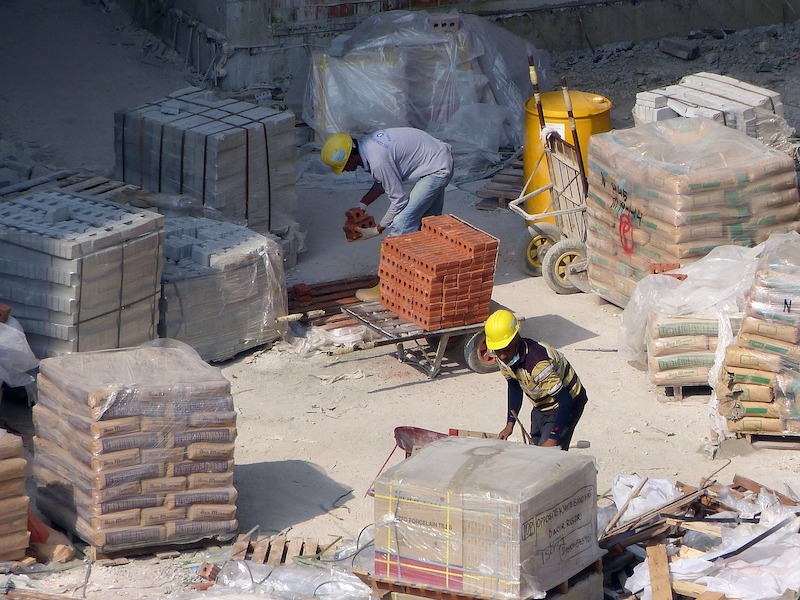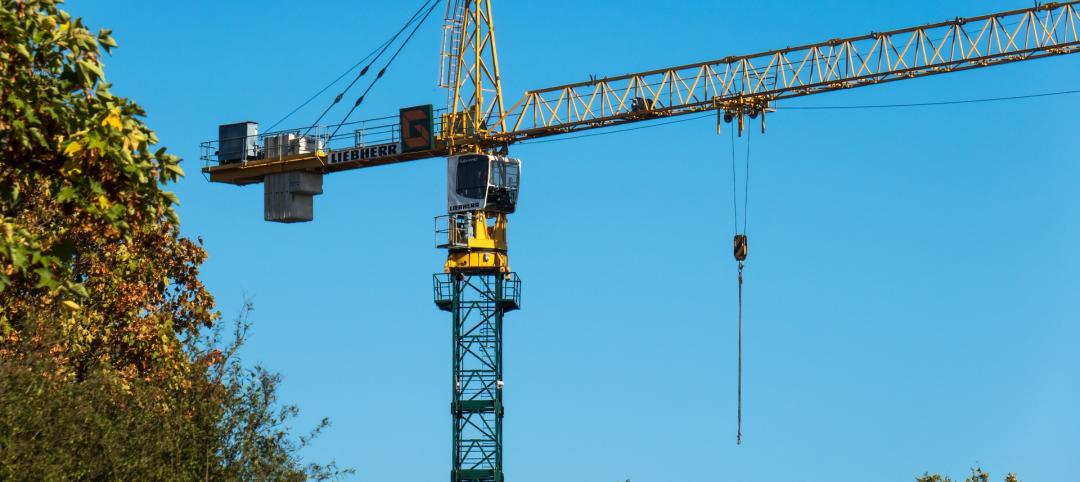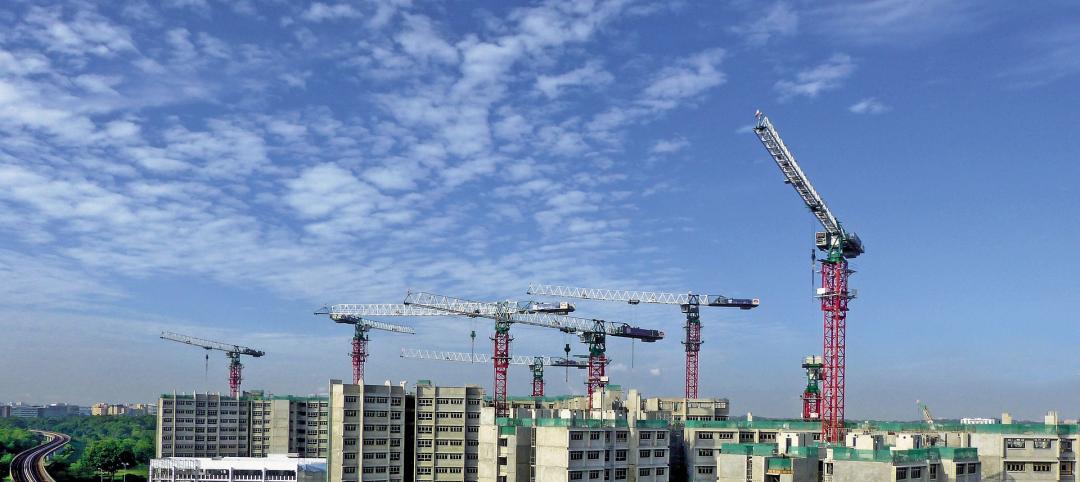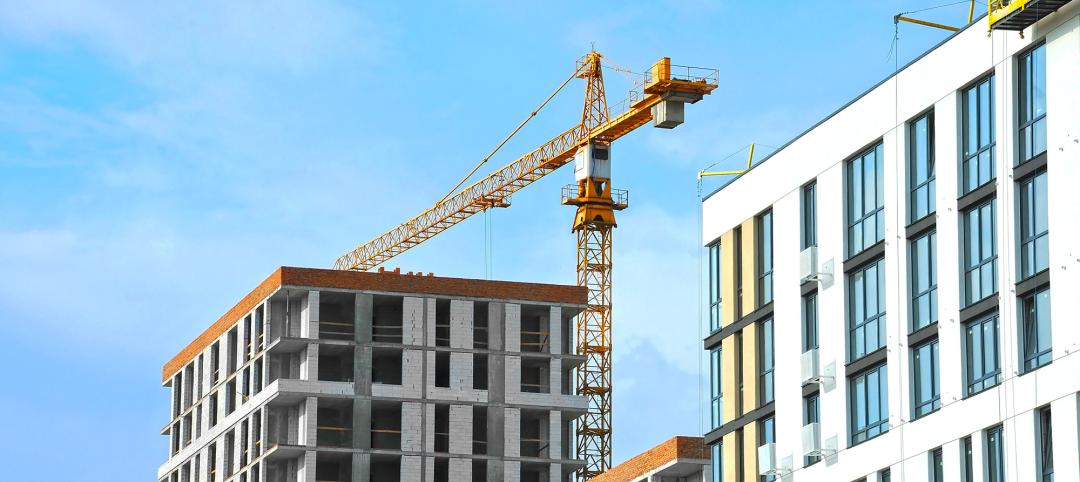Construction employment declined by 975,000 jobs in April as a new survey by the Associated General Contractors of America and data from construction technology firm Procore show deteriorating demand for construction, officials with the association announced today. The new economic data underscores the need for new federal measures to help the construction industry recover, including infrastructure funding, safe harbor provisions and fixes to the Paycheck Protection Program guidance, association officials added.
“Today’s jobs report, our new survey results and Procore’s data make it clear that the construction industry is not immune to the economic damage being inflicted on our country by the pandemic,” said Ken Simonson, the association’s chief economist. “Without new federal help, it is hard to see a scenario where the construction industry will be able to recover any time soon.”
The economist said the loss of 975,000 construction jobs from March to April constituted nearly 13% of the industry’s employment and was, by far, the worst one-month decline ever. He added that unemployment among workers with recent construction experience soared by 1.1 million from a year earlier, to 1,531,000, while the unemployment rate in construction jumped from 4.7% in April 2019 to 16.6%.
Simonson noted that a survey of over 800 construction firms the association released today found that while only 30% of firms report projects have been halted by government order – down from 35% two weeks ago – 37% say their owners have voluntarily halted work out of fears of the pandemic. Thirty-one percent report that owners have canceled projects because of a predicted reduction in demand. And 21% report having projects canceled as a result of a loss of private funding.
All told, 67% of firms report having a project canceled or delayed since the start of the outbreak in early March. These cancellations have forced some firms to cut staff. Twenty-three percent, for example, report cutting staff in March and 22% cut staff in April. Yet the economist said the job losses would likely have been worse if not for the federal government’s Paycheck Protection Program loans, noting that 80% of respondents report having applied for the loans and most having been approved.
The association economist cautioned, however, that recent revisions by the Treasury Department to its guidance for the loans have prompted quite a few firms to consider returning the funds. Eighteen percent of firms report they are considering returning the funds because of the vague guidance, and most of these will be forced to cut staff as a result. Simonson added that is one reason why 12% of firms report they plan to make additional layoffs within the next four weeks.
“Unfortunately, our survey indicates that layoffs are continuing to occur throughout the nation,” Simonson added. “Between March 1 and May 1, 39% of responding firms reduced their headcount. Reductions were particularly severe in the Northeast, where 53% of firms terminated or furloughed employees. The South had the fewest firms reporting staff reductions—29%, while 38% of firms in the Midwest and 45% in the West reduced headcount.”
In addition to the new survey results, the association also shared new data released by construction technology firm Procore. The data is based on the transactions logged via the company’s software by tens of thousands of construction firms across the country. That data is available here and shows how demand and hours-worked have declined in most states since the start of the pandemic. Procore also released a new blog post about the data that can be found here.
“We realized that the construction industry primarily gathers data through surveys, which can take a long time, and it’s pretty tough to get a quick visualization or snapshot of what’s going on with construction at a national and state level. So we decided to do something about it,” said Kristopher Lengieza, Senior Director of Business Development at Procore. “These insights are helping industry organizations and economists analyze trends, debate potential courses of action, and decide on the best path forward, in an effort to support the construction industry through the current pandemic.”
Simonson noted that the construction association was calling on federal officials to take additional steps to prevent additional industry layoffs. Among those steps are clarifying the guidance regarding the paycheck protection program. He also noted that 61% of survey respondents say Congress should enact a “safe harbor” set of protocols to provide firms that are following safe practices with protection from tort or employment liability for failing to prevent a Covid-19 infection.
In addition, 43% of survey respondents hope for a larger federal investment in infrastructure, which will be especially vital as budget constraints force many state and local officials to curtail capital expenditures. And 32% of firms report they would like Washington to enact a Covid-19 business and employee continuity and recovery fund. And an equal percent wants Congress to fill state highway transportation departments’ immediate, $50 billion funding gap.
“Federal officials can, and should, take additional steps to help avoid more layoffs and economic hardship,” Simonson added. “The construction industry’s job losses have little to do with temporary work-stoppages, but a lot to do with longer-term economic problems that will not end with the stay-at-home orders.”
Click here for the association’s survey results and here for a video summary of the survey responses. Click here for Procore’s new construction data.
Related Stories
MFPRO+ Research | Oct 15, 2024
Multifamily rents drop in September 2024
The average multifamily rent fell by $3 in September to $1,750, while year-over-year growth was unchanged at 0.9 percent.
Contractors | Oct 1, 2024
Nonresidential construction spending rises slightly in August 2024
National nonresidential construction spending increased 0.1% in August, according to an Associated Builders and Contractors analysis of data published today by the U.S. Census Bureau. On a seasonally adjusted annualized basis, nonresidential spending totaled $1.22 trillion.
The Changing Built Environment | Sep 23, 2024
Half-century real estate data shows top cities for multifamily housing, self-storage, and more
Research platform StorageCafe has conducted an analysis of U.S. real estate activity from 1980 to 2023, focusing on six major sectors: single-family, multifamily, industrial, office, retail, and self-storage.
Student Housing | Sep 17, 2024
Student housing market stays strong in summer 2024
As the summer season winds down, student housing performance remains strong. Preleasing for Yardi 200 schools rose to 89.2% in July 2024, falling just slightly behind the same period last year.
MFPRO+ Research | Sep 11, 2024
Multifamily rents fall for first time in 6 months
Ending its six-month streak of growth, the average advertised multifamily rent fell by $1 in August 2024 to $1,741.
Contractors | Sep 10, 2024
The average U.S. contractor has 8.2 months worth of construction work in the pipeline, as of August 2024
Associated Builders and Contractors reported today that its Construction Backlog Indicator fell to 8.2 months in August, according to an ABC member survey conducted Aug. 20 to Sept. 5. The reading is down 1.0 months from August 2023.
Construction Costs | Sep 2, 2024
Construction material decreases level out, but some increases are expected to continue for the balance Q3 2024
The Q3 2024 Quarterly Construction Insights Report from Gordian examines the numerous variables that influence material pricing, including geography, global events and commodity volatility. Gordian and subject matter experts examine fluctuations in costs, their likely causes, and offer predictions about where pricing is likely to go from here. Here is a sampling of the report’s contents.
Contractors | Aug 21, 2024
The average U.S. contractor has 8.4 months worth of construction work in the pipeline, as of July 2024
Associated Builders and Contractors reported today that its Construction Backlog Indicator held steady at 8.4 months in July, according to an ABC member survey conducted July 22 to Aug. 6. The reading is down 0.9 months from July 2023.
MFPRO+ Research | Aug 9, 2024
Apartment completions to surpass 500,000 for first time ever
While the U.S. continues to maintain a steady pace of delivering new apartments, this year will be one for the record books.
Contractors | Aug 1, 2024
Nonresidential construction spending decreased 0.2% in June
National nonresidential construction spending declined 0.2% in June, according to an Associated Builders and Contractors analysis of data published today by the U.S. Census Bureau. On a seasonally adjusted annualized basis, nonresidential spending totaled $1.21 trillion. Nonresidential construction has expanded 5.3% from a year ago.

















